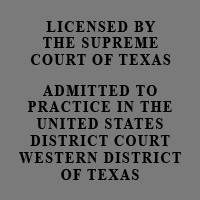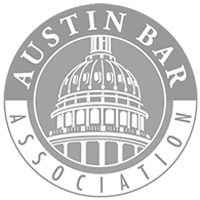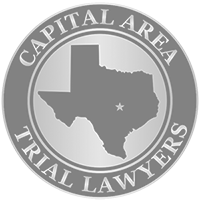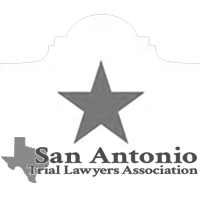Fraudulent Post Marketing Studies Including Drug Company Seeding Trials and Switch Campaigns Can Be The Basis of Large Whistleblower Reward Lawsuits by Texas Fraudulent Post Marketing Study Lawyer, Drug Company Seeding Trial Lawyer, Seeding Trail Bounty Action Lawyer, and Switch Campaign Reward Lawyer Jason Coomer
Under the Foreign Corrupt Practices Act, the Federal False Claims Act, and other Federal laws whistleblowers with original and specialized knowledge and evidence of bribes and illegal kickbacks are eligible to recover large financial rewards for properly exposing illegal seeding trials and switch campaigns fraudulently used to pay doctors for prescribing patients a particular drug or medical device. These fraudulent post marketing studies can be the basis of large domestic and international whistleblower reward lawsuit. By gathering this evidence and going through a lawyer, these whistleblowers can have their cases confidentially reviewed and in some cases submit their cases to the government anonymously to protect their identity through the process. If you are aware of illegal seeding trials, switch campaigns, fraudulent post marketing studies, illegal bribes, or illegal kickbacks that were used to increase sales or market share or secure a large contract, please feel free to contact Drug Company Seeding Trial Lawyer and Switch Campaign Whistleblower Reward Lawyer Jason Coomer via e-mail message or use our submission form about a potential SEC Whistleblower Incentive Program Action or other Whistleblower Bounty Action.
Foreign Corporation Illegal Bribe Whistleblower Lawsuit, Domestic Corporation Illegal Kickback Lawsuit, Violations of the Foreign Corrupt Practices Act Whistleblower Lawsuit, FCPA SEC Whistleblower Lawsuit, SEC Whistleblower Incentive Program Lawsuit, & Illegal Corporate Bribe Bounty Lawsuit Information
Corporations that pay illegal kickbacks and bribes to government officials and former government officials in exchange for contracts including large building projects can be brought to justice and made to pay large penalties under the Foreign Corrupt Practices Act and whistleblowers that bring these corporations to justice may be able to collect large economic rewards under the Securities Exchange Act (SEC Whistleblower Bounty Actions) and the Commodity Exchange Act (CFTC Whisteblower Bounty Actions).
The Illegal Bribe Whistleblower or Illegal Kickback Whistleblower may be entitled to not only the amount of the illegal bribe or kickback, but the benefit of the illegal bribe or kickback. In cases where $100,000.00 bribe is made to obtain a $100 million building project, the Illegal Bribe Whistleblower or Illegal Kickback Whistleblower may be entitled to 10 to 30% of the $100,000,000.00 and the $100,000.00 translating into a $10 million to $30 million award.
Foreign Corrupt Practices Act Violations, Foreign Corrupt Practices Act Prohibitions, Securities Exchange Act, Illegal Bribes, Illegal Kickbacks, and the SEC Whistleblower Incentive Program
The Foreign Corrupt Practices Act of 1977 (FCPA) (15 U.S.C. §§ 78dd-1, et seq.) is a United States federal law known primarily for two of its main provisions, one that addresses accounting transparency requirements under the Securities Exchange Act of 1934 and another concerning prohibitions of the bribery of foreign officials. Through the Foreign Corrupt Practices Act, the anti-kickback and anti-bribery provisions of the Act prohibit any person from making use of interstate commerce corruptly, in furtherance of an offer or payment of anything of value to a foreign official, foreign political party, or candidate for political office, for the purpose of influencing any act of that foreign official in violation of the duty of that official, or to secure any improper advantage in order to obtain or retain business.
The prohibition includes any U.S. or foreign corporation that has a class of securities registered, or that is required to file reports under the Securities and Exchange Act of 1934. This Act includes any individual who is a citizen, national, or resident of the United States and any corporation and other business entity organized under the laws of the United States or having its principal place of business in the United States. The Act defines any person to include both enterprises and individuals.
By violating the Securities and Exchange Act and Foreign Corrupt Practices Act, large corporations including both some foreign corporations and domestic corporations can be subject to SEC penalties, disgorgement, restitution, and interest. If a whistleblower provides the specialized knowledge and evidence to detect the violations, that whistleblower can receive from 10% to 30% of any recovery made be the SEC.
The whistleblower or whistleblowers can be any individual including an employee of the fraudulent corporation, competition of the corporation that missed out on the contract because of the illegal bribes or illegal kickbacks, or a group of individuals with specialized knowledge and original evidence of the violations of the Foreign Corrupt Practices Act.
SEC Whistleblower Reward Lawsuits, Dodd-Frank Act Whistleblower Bounty Actions, CFTC Commodity Whistleblower Recovery Lawsuits, SEC Whistleblower Incentive Program Claims, Illegal Bribe Bounty Actions, & other Whistleblower Recovery Lawsuits
SEC Whistleblower Reward Lawsuits, Corporate Bribery Whistleblower Recovery Lawsuits, Commodity Whistleblower Recovery Lawsuits, Illegal Kickback for Contract Whistleblower Reward Lawsuits, and SEC Violation Whistleblower Reward Lawsuits will become more common with the enactment of laws like the Dodd-Frank Wall Street Reform and Consumer Protection Act that create bounties that can be collected by whistleblowers that properly report SEC violations, illegal bribes, illegal kickbacks, financial fraud, securities fraud, commodities fraud, and stimulus fraud that result in monetary sanctions over one million dollars ($1,000,000.00). The SEC can award the whistleblower up to 30% of the money collected.
By creating whistleblower bounties for people with specific information of violations of the Foreign Corrupt Practices Act, the Securities Exchange Commission, and many forms of financial fraud, it is expected that hard to detect crimes, illegal kickbacks, bribes, and financial fraud will be exposed by whistleblowers that are interested not only in exposing fraudulent and illegal practices, but also in collecting large whistleblower awards for exposing illegal actions by large corporations, banks, hedge funds, multimillionaires, billionaires, and others that are violating the law.
Included in these new whistleblower bounty laws, are strong whistleblower protections including the ability for some whistleblowers to blow the whistle on fraud through a whistleblower recovery attorney and remain anonymous through most if not all of the SEC investigation. Though to receive the whistleblower reward, the whistleblower will have to provide their identity to the SEC, the whistleblower's identity can remain totally anonymous through most of the investigation and the whistleblower's identity will remain confidential even through payment.
These new identity protections combined with strong anti-retaliation laws including potential obstruction of justice criminal liability for anyone that retaliates against a whistleblower were set up to encourage high end whistleblowers with good careers to be able to step forward and be protected. These whistleblowers with the help of a whistleblower recovery lawyer can often determine what whistleblower reward they may be eligible to receive prior to divulging their identity.
The U.S. Securities and Exchange Commission (SEC) and SEC Whistleblower Incentive Program
The U.S. Securities and Exchange Commission (frequently abbreviated SEC) is a federal agency which holds primary responsibility for enforcing the federal securities laws and regulating the securities industry, the nation's stock and options exchanges, and other electronic securities markets in the United States. The mission of the U.S. Securities and Exchange Commission is to protect investors, maintain fair, orderly, and efficient markets, and facilitate capital formation.
The SEC was created in 1934 and enforces the Securities Act of 1933, the Trust Indenture Act of 1939, the Investment Company Act of 1940, the Investment Advisers Act of 1940, the Sarbanes-Oxley Act of 2002 and other statutes. The SEC was created by section 4 of the Securities Exchange Act of 1934 (now codified as 15 U.S.C. § 78d and commonly referred to as the 1934 Act).
The laws and rules that govern the securities industry in the United States derive from a simple and straightforward concept: all investors, whether large institutions or private individuals, should have access to certain basic facts about an investment prior to buying it, and so long as they hold it. To achieve this, the SEC requires public companies to disclose meaningful financial and other information to the public. This provides a common pool of knowledge for all investors to use to judge for themselves whether to buy, sell, or hold a particular security. Only through the steady flow of timely, comprehensive, and accurate information can people make sound investment decisions.
The SEC is responsible for administering eight major laws that govern the securities industry. They are: the Securities Act of 1933, the Securities Exchange Act of 1934, the Trust Indenture Act of 1939, the Investment Company Act of 1940, the Investment Advisers Act of 1940, the Sarbanes-Oxley Act of 2002, the Credit Rating Agency Reform Act of 2006, and the Dodd-Frank Wall Street Reform and Consumer Protection Act.
The enforcement authority given to the SEC by Congress allows it to bring civil enforcement actions against individuals or companies alleged to have violated securities law or committed securities fraud including committing accounting fraud, providing false information, or engaging in insider trading.
The SEC oversees the key participants in the securities world, including securities exchanges, securities brokers and dealers, investment advisors, and mutual funds. Here the SEC is concerned primarily with promoting the disclosure of important market-related information, maintaining fair dealing, and protecting against fraud. Crucial to the SEC's effectiveness in each of these areas is its enforcement authority. Each year the SEC brings hundreds of civil enforcement actions against individuals and companies for violation of the securities laws. Typical infractions include insider trading, accounting fraud, and providing false or misleading information about securities and the companies that issue them.
One of the major sources of information on which the SEC relies to bring enforcement action is investors themselves — another reason that educated and careful investors are so critical to the functioning of efficient markets. To help support investor education, the SEC offers the public a wealth of educational information on this Internet website, which also includes the EDGAR database of disclosure documents that public companies are required to file with the Commission. Though it is the primary overseer and regulator of the U.S. securities markets, the SEC works closely with many other institutions, including Congress, other federal departments and agencies, the self-regulatory organizations (e.g. the stock exchanges), state securities regulators, and various private sector organizations. In particular, the Chairman of the SEC, together with the Chairman of the Federal Reserve, the Secretary of the Treasury, and the Chairman of the Commodity Futures Trading Commission, serves as a member of the President's Working Group on Financial Markets.
In July 2010, the Dodd-Frank Wall Street Reform and Consumer Protection Act was signed into law which includes significant new financial fraud bounty whistleblower provisions. These provisions create economic incentives for SEC violation whistleblowers and other financial fraud whistleblowers with "original information" of SEC violations and financial fraud to blow the on large scale financial fraud and SEC violations.
These SEC bounty claims must be brought voluntarily under the SEC Bounty Programs by one or more individuals. The whistleblower or whistleblowers must be a natural person or natural persons, companies or other entity is not eligible to be financial fraud bounty whistleblowers. Successful SEC violation bounty whistleblowers and financial fraud whistleblowers can collect financial rewards for whistleblower bounty actions that result in the imposition of monetary sanctions of greater than $1 million dollars. This new financial fraud SEC bounty program is called the "Securities Whistleblower Incentives and Protection".
Through SEC Whistleblower Bounty Actions the SEC will award between ten percent and thirty percent of the money collected to a qualified whistleblower who voluntarily provides the SEC with original information about a violation of the securities laws that leads to a successful enforcement of an action brought by the SEC that results in monetary sanctions exceeding $1,000,000.00.
So long as the financial fraud whistleblower or financial fraud whistleblowers base their claims on "original information", any person (not just an employee or insider) may file a SEC financial fraud bounty claim. Further, if the financial fraud whistleblower is represented by an attorney, the whistleblower may file the financial fraud bounty claim anonymously. However, before the financial fraud bounty award is paid, the whistleblower's identity shall be revealed to the SEC and SEC shall be provided information about the whistleblower that it requests.
Foreign Corporation Illegal Bribe Whistleblower Award Lawyers, Domestic Corporation Illegal Kickback Whistleblower Reward Lawyers, Violations of the Foreign Corrupt Practices Act Whistleblower Compensation Lawyers, FCPA SEC Whistleblower Reward Lawyers, SEC Whistleblower Incentive Program Lawyers, & Illegal Bribe Informant Bounty Lawyers by Texas Corporate Bribe Whistleblower Lawyer and Illegal Kickback Whistleblower Recovery Lawyer Jason Coomer
As a Illegal Bribe Whistleblower Recovery Lawyer and SEC Illegal Kickback Whistleblower Reward Lawyer, Jason S. Coomer commonly works with other powerful illegal contract bribe whistleblower lawyers and illegal corporate kickback whistleblower award lawyers to handle large International Corporate Fraud Whistleblower Compensation Lawsuits, SEC Foreign Corporation Illegal Bribe Whistleblower Reward Lawsuits, Corporate Illegal Kickback Whistleblower Bounty Actions, Commodity Fraud Bounty Claims, and other Foreign Corrupt Practices Act Whistleblower Reward Lawsuits. He also works on Medicare Fraud Whistleblower Lawsuits, Defense Contractor Fraud Whistleblower Lawsuits, Stimulus Fraud Whistleblower Lawsuits, Government Contractor Fraud Whistleblower Lawsuits, Medicare Illegal Kickback Lawsuits, and other whistleblower recovery lawsuits.
If you are the original source with special knowledge of fraud and are interested in learning more about an illegal kickback, SEC violation, FCPA violation, or bribe whistleblower recovery lawsuit, please feel free to contact Corporate Illegal Kickback and Bribe Whistleblower Lawyer Jason Coomer via e-mail message or use our submission form about a potential SEC Whistleblower Incentive Program Action, Whistleblower Recovery Lawsuit, or other Whistleblower Bounty Action.
Feel Free to Contact Us with any Questions
Associations




